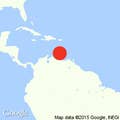CARACAS, Venezuela — Two decades after the socialist revolution was launched by Hugo Chávez, Venezuela is crumbling from within.
The US has been piling the pressure on Caracas from outside for the last month, in the hope of bringing down the government of Nicolás Maduro. Bellicose statements from Donald Trump about “all options” being on the table, suggesting that he backs a military response, are matched with not-so-subtle hints from his national security adviser. At the end of last month, John Bolton appeared to reveal a plan to send 5,000 troops to neighboring Colombia.
“The extremists of the White House have taken it upon themselves to carry out a coup in Venezuela,” Maduro told the BBC in a rare interview with the foreign media.
But the reality is — as Trump prepares to speak to Venezuelan-Americans in Miami on Monday, further politicizing the crisis in the US — the main threat to Maduro is coming from the inside.
Last month, the US-backed head of the opposition-held National Assembly, Juan Guaidó, declared himself interim president, which was then supported by some 60 countries. The US soon after issued a round of sanctions against state-run oil company Petróleos de Venezuela, S.A., potentially cutting off Caracas from $11 billion in revenue over the next year. Another set of US sanctions hit five of Maduro's top officials on Friday.
The US campaign has stirred old memories of interventions in Latin America that saw governments toppled in Chile, Honduras, and even in Venezuela, where a US-backed coup temporarily ousted then-president Chávez in 2002. Even the supply of humanitarian aid from outside has been politicized, with Maduro and his administration claiming that that a shipment currently waiting at the border with Colombia is contaminated with carcinogens.
Meanwhile, once-loyal working-class supporters are turning their backs on the government, while politicians and diplomats have crossed the aisle to join the opposition.
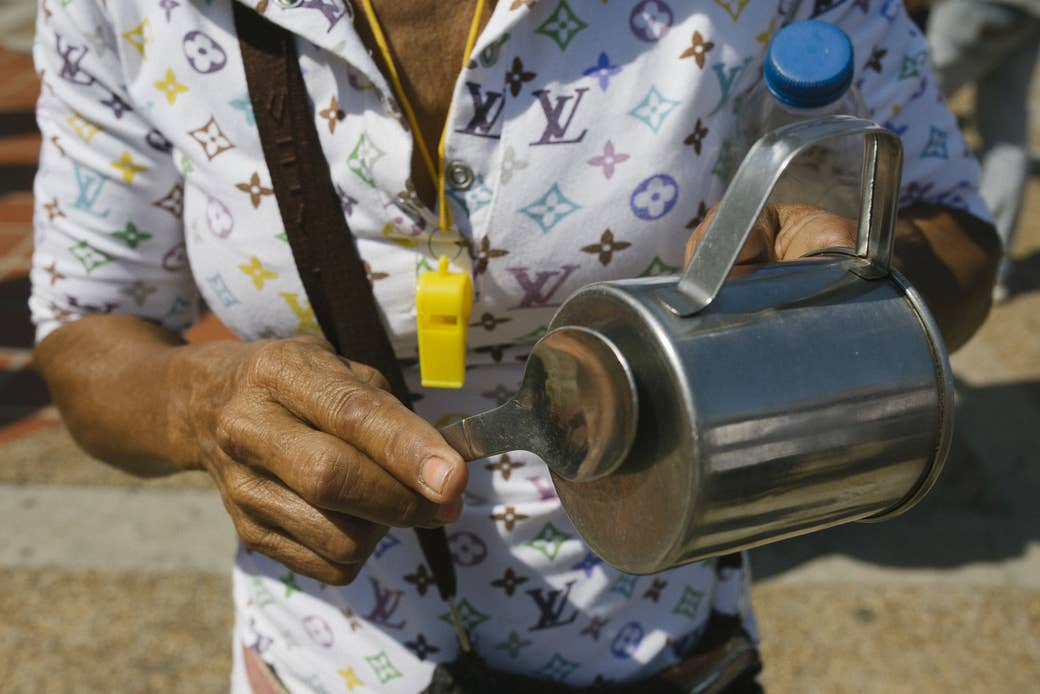
For now Maduro appears to have the support of most of the army, but even that is in doubt. A growing wave of defections could change everything. Earlier this month, shortly after a military attache in Washington publicly broke with Maduro, an active-duty Venezuelan colonel claimed that 90% of the army was against the president. Maduro has turned to his most loyal special forces unit to crack down on protesters, in part because the army seems no longer prepared to violently put down demonstrations.
The question now is whether Maduro can do enough to keep the army from turning against him, while quelling the anger of his once-loyal supporters.
Few people better exemplify the dilemma facing the millions of Venezuelans than Arkiely Perfecto, a hardline leftist lawmaker. Perfecto told BuzzFeed News that she owed everything — her apartment, her career, even food, a precious resource in recent years — to Chávez. Perfecto has spent most of her life as an ultra-loyal chavista, the term given to followers of Chávez's ideology, and a member of the Marxist Revolutionary Tupamaro Movement, which she joined when she was 13. “It was a project based on supreme happiness,” she said. Instead, “we’ve just spent the saddest Christmas here in Venezuela.”
For the first time, Perfecto sees corruption and lies everywhere. “What these politicians claim in their speeches and what they actually do does not match up,” she said.
Now 31, Perfecto recently began to ask herself how she could continue to support Maduro amid widespread food shortages and exorbitant inflation that limits her, and many of her constituents, to a single meal a day. She can no longer turn a blind eye to the political corruption she has seen up close. “We believed in a project but now we feel cheated,” she said.
Last month, Perfecto made her choice. As she walked into the golden-domed building in the capital city of Caracas that houses the two bodies that are attempting to govern the country simultaneously — the pro-government Constituent Assembly and the opposition-led National Assembly — she knew she could no longer side with her colleagues.
Instead of turning right along the hallway that connects the two chambers, to sit alongside Maduro’s allies, for the first time in her political career, she turned left, where Guaidó and the rest of the legislators greeted her with a standing ovation.
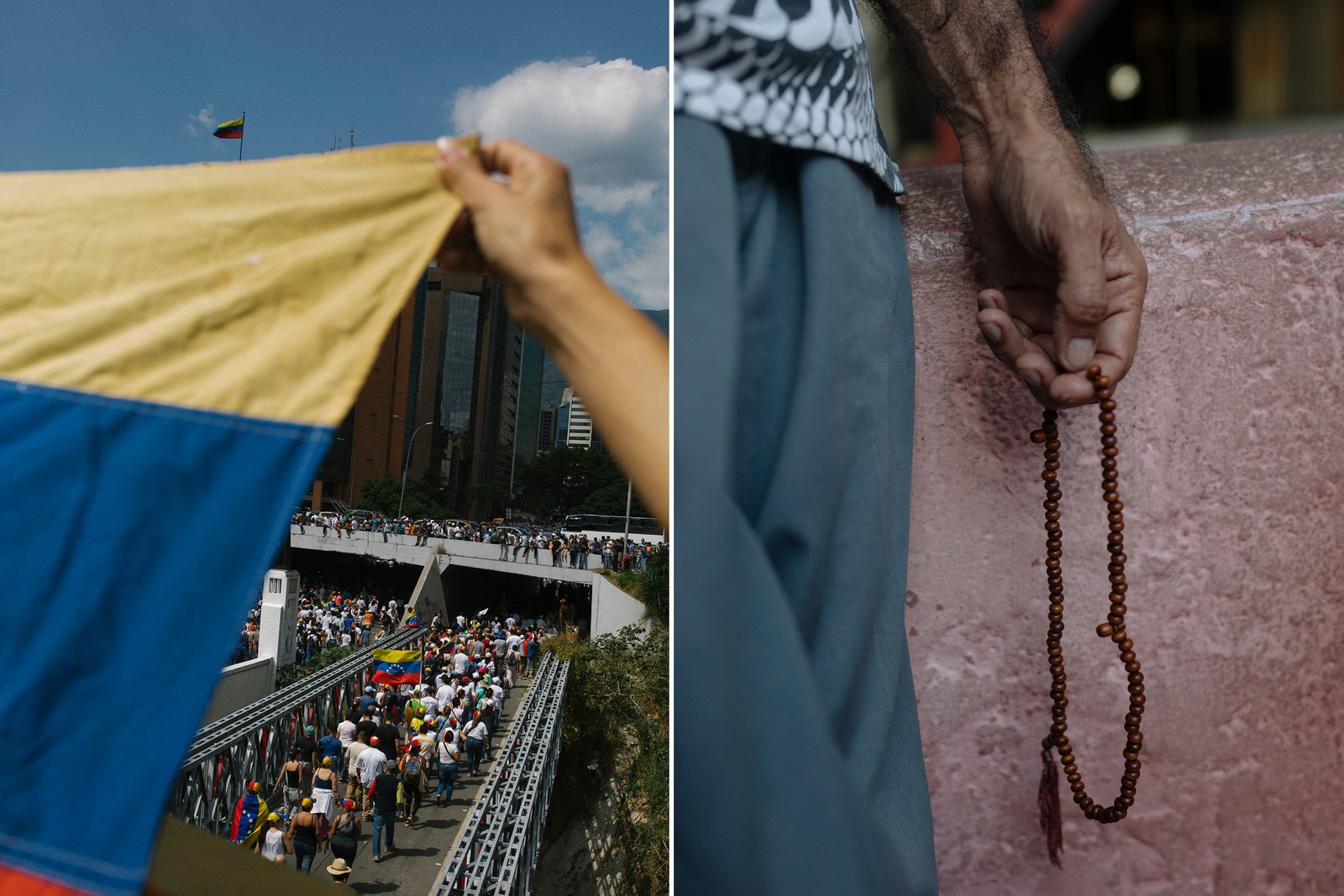
In a sign of Maduro’s growing desperation, repression of the opposition has shifted from public clashes at demonstrations into the narrow streets of working-class neighborhoods.
The kinds of crackdowns that have seen protesters shot in daylight are now taking place at night in once-loyal Chávez strongholds. Since protests started afresh a month ago, Maduro has increasingly turned to an elite special forces unit known as FAES, rather than the army. Dressed in black, and heavily armed, FAES units go house to house, cracking heads and arresting opponents, intimidating protesters and sewing terror in these tight-knit communities, according to relatives of victims and human rights activists.
“The tactic has changed,” said Carlos Romero, a political analyst at the Central University of Venezuela. “They go door to door, and stop protests from growing in certain public places.”
In Catia, a sprawling, crime-ridden neighborhood in Caracas, Betzabeth Cabello knows all too well the dangers of standing up against the government. Cabello, who works at a state-run bank, was once devoted to the Chávez revolution. That all changed at the end of last month.
Cabello’s brother, Roberth, had become increasingly frustrated and angry as the family was unable to afford the medicine their mother needed to treat her Alzheimer’s. On January 22, the day after a rare, foiled mutiny by the armed forces, Roberth went out to protest for the first time.
He was out again the following day, just as Guaidó declared himself interim president.
Less than 24 hours later, Roberth was dead.
He had gone out onto the streets after his friend, Victor — who asked that only his first name be published for fear of retaliation by the authorities — heard a commotion in their neighborhood. Within minutes, they were caught up in a hail of bullets, and Roberth was killed.
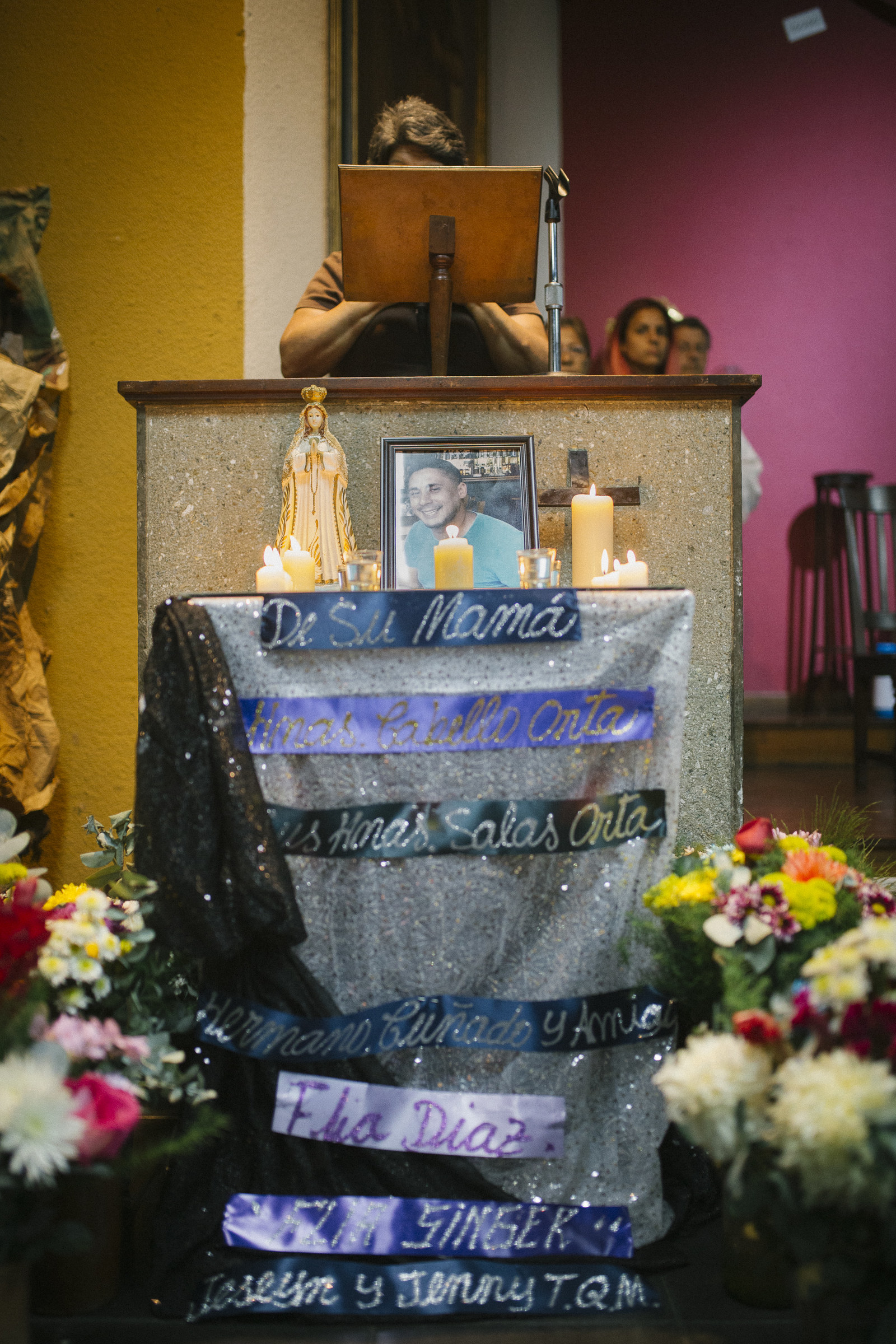
When Cabello went to see her brother’s body in the morgue later that day, she was told by the attendant that, “he was killed for being a guarimbero,” a local term for violent anti-government protesters.
Victor said that the men who killed his friend Roberth were dressed in the black uniforms of the FAES. Cabello too believes they killed her brother.
The Cabellos are not alone in their desire to see the back of Maduro. Families all across Venezuela are increasingly disillusioned. The early years of Chávez’s socialist revolution after taking power in 1999 — financed by the country’s vast oil reserves at a time of record high petroleum prices — lifted thousands of marginalized neighborhoods out of poverty. As Chávez clashed with the George W. Bush administration in the US, his administration was providing many with subsidized housing while opening health clinics and schools. But those days are long gone, even if Chávez himself still looms large, his face plastered across buildings around the country.
Maduro has not been so lucky with oil prices, which dropped dramatically in 2014, just a year into his presidency after Chávez’s death, leaving the country in an economic crisis made worse by mismanagement and official corruption.
Despite this, the state retained widespread support among the working class. Today, many Venezuelans still support the original concepts of the Chávez revolution — they just want Maduro out.
Earlier this month, as Cabello watched her sisters get ready for the last of nine evenings of prayer for her dead brother, she sat on Roberth’s bed and started putting together a collage of digital photographs of him to use at a memorial. She thinks the government is aware its time is up. “They know that most people no longer want them around,” she said.
For now, targeted repression by the state seems to be working, at least in some pockets of Caracas. Standing outside the local church as people streamed in for a prayer in honor of Roberth, Victor said he would not attend any future anti-government marches.
“The last thing the government needed was for these neighborhoods to turn on them,” he said. “But these deaths, there will be no justice for them.”
Many believe discontent amongst former loyalists will continue to grow, and likely find other ways to express itself.
Cabello said she would quit her job at a state-owned company, not only in response to her brother’s death but also because she “no longer feels comfortable working for someone who doesn’t support the people.”
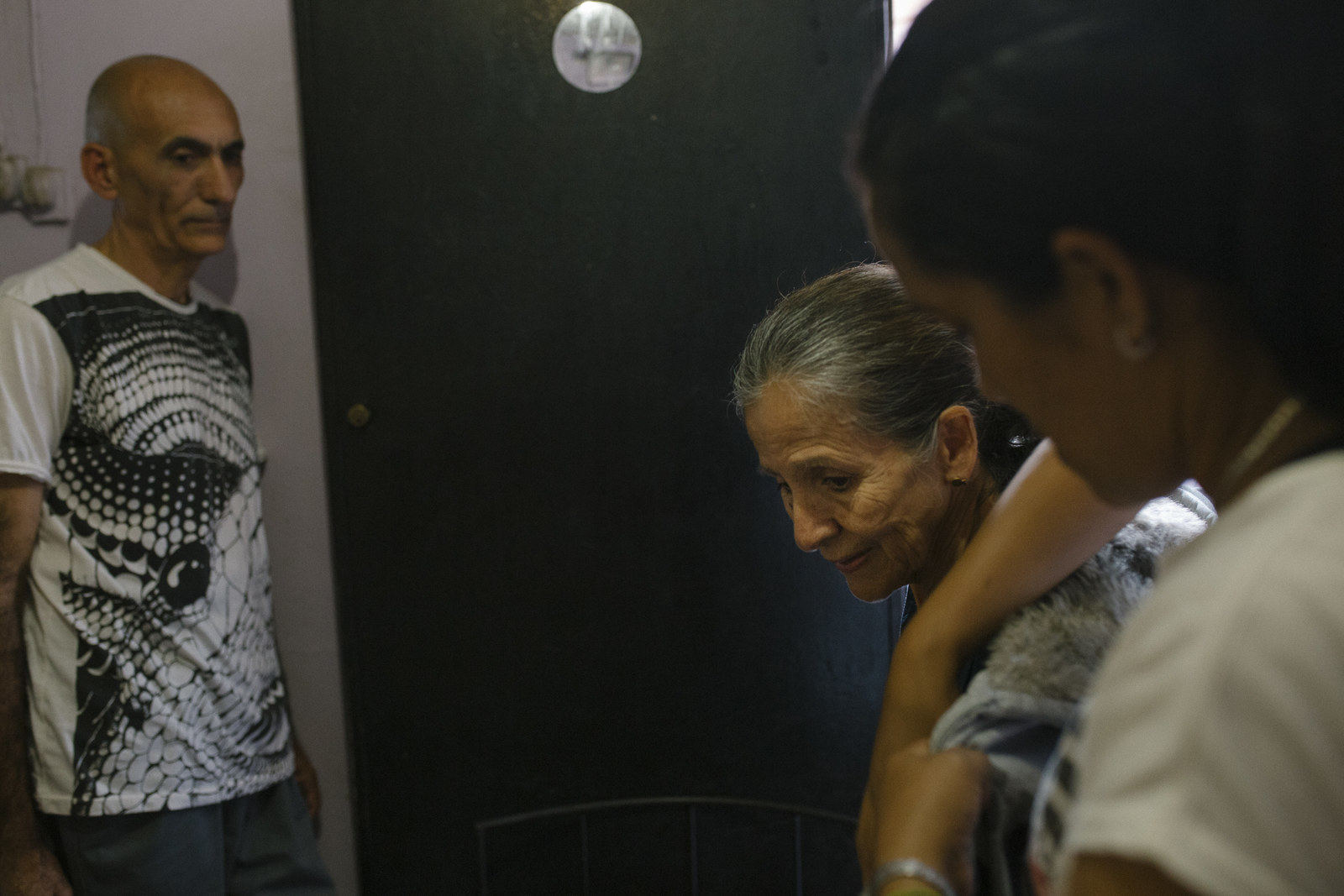
Romer Sánchez used to be a staunch supporter of Chávez’s revolution, working at a government-owned company and serving as a policeman. But last month he packed his bags and started looking at flights to Spain, where he wanted to request political asylum, joining an exodus of several million people who’ve left the country since 2014.
That all changed when Guaidó took center stage. “He’s fresh,” said Sánchez. “He’s been able to put the government against the wall and do, in one month, what the opposition couldn’t do in four years.”
Sánchez lives in La Guaira, a port city to the north of Caracas that until January had not risen up against Maduro. For two decades, neighborhoods like this Chavista stronghold defined themselves by their anti-American sentiment — they sang the songs of the regime, and protested against any provocation from the US. But now the idea of a US invasion, though still frightening to many, has become somewhat more palatable to those who want to see Maduro out.
“I’ll invite the gringos to come. I’ll make them coffee myself. What we need is a radical change,” said Sánchez.
Despite the threats of violence many Venezuelans from neighborhoods that until recently defended the government are still taking to the streets. In La Guaira, on a recent sun-drenched morning, hundreds of people started to stream into one of the main plazas, many of them with the country’s tricolor flag painted on their cheeks. With the Caribbean Sea as the backdrop less than a mile away, the gathering turned into a party, with thunderous clapping regularly interrupting the ballads blasing from a set of speakers. One man had a US flag draped around his shoulders. Eventually, the crowd would swell to more than a thousand.
By contrast, the pro-government rally that took place nearby that day barely mustered 200 people. “Venezuela is to be respected. Gringo, go home!” read a handmade sign in the crowd.
Sánchez is placing the last of his hope on Guaidó. If he fails, the opposition will be over.
“This is Venezuela’s last train,” he said.

